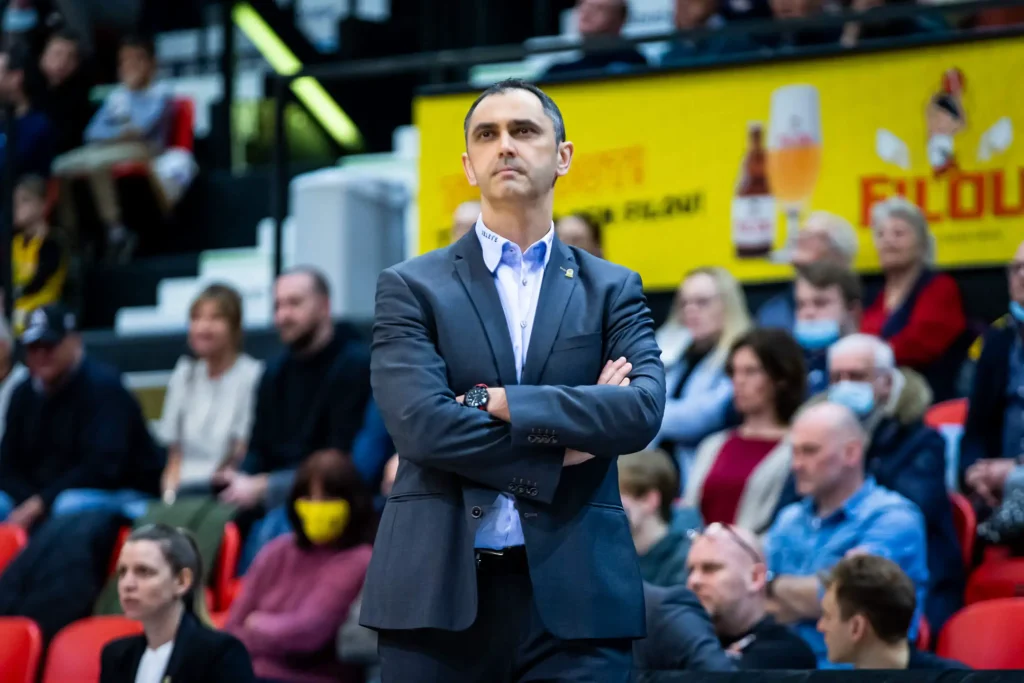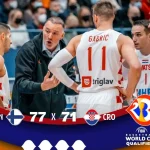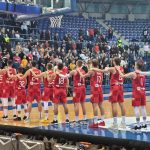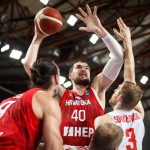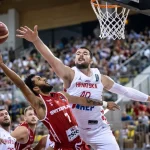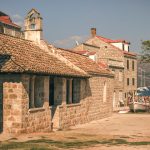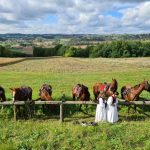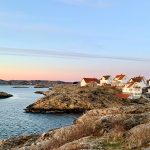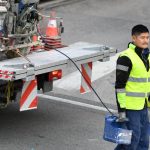Dario Gjergia is a Croatian coach who has found a second home in Belgium. In recent years he has achieved excellent results: during 11 seasons as coach at Filou Ostende, he has already won 10 national basketball championships (with the 11th still ongoing), and since 2008, he is the coach of the Belgian national team, appointed until 2025 (which would make him the longest-serving Croatian coach of a foreign team, more than Petrovic, Repesa and Tabak).
Seriousness, commitment, perseverance, and his Dalmatian temperament are the characteristics that distinguish him and for which he is appreciated in Belgium. Hear what his players say about him:
“His basketball IQ is off the charts. Dario Gjergja knows everything; he lives for basketball. He’s a real student of the game. He knows every play, every offence, every defence. He’s giving confidence to everybody, and with him, everything is clear from the beginning”.
He built his talent step by step, without ever stepping over anyone and by seizing every opportunity life gave him. Gjergja, as it is clear from his surname, was born and raised in Zadar, the Croatian city of basketball, the town where orange balls echo in all the streets and alleys and where all the legends of Croatian basketball have played. Like all the boys who grew up there, Gjergja also played basketball when he was young. But when he came of age, he understood that his passion was to become a coach; he saw himself more in this role than as a player. Therefore, he decided to study at the Faculty of Kinesiology of the University of Zagreb and, at the same time, he self-financed courses to become a coach.
At the age of 25, he became the assistant coach for KK Zagreb. He later went to Cibona, in Russia with Ural Great Perm, then back to Croatia with the Under-20 national team. In 2008 he moved to Belgium as an assistant coach for Charleroi and then as the main coach in Liège. Finally, at the end of 2011, he started coaching the FILOU Ostende, where he truly feels at home.
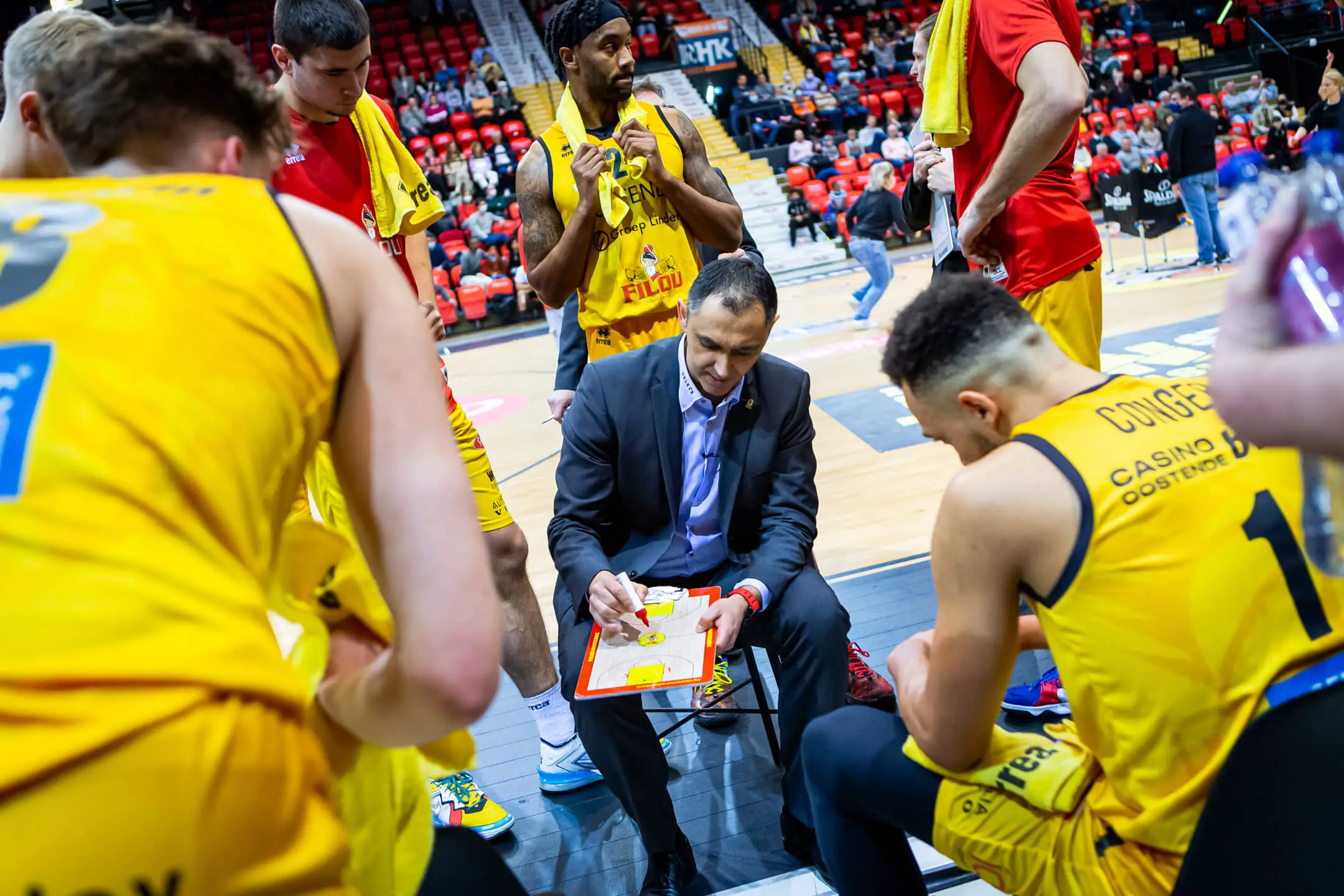
Official photo @basketbalcluboostende
You have been in Belgium for many years now. You lived both in Wallonia and Flanders. What are the main differences between the two regions?
I arrived in Belgium in 2008, where I started first as an assistant in Charleroi and then as a coach in Liège. At the end of 2011, I started coaching the Ostend team, and since then I have remained. I feel so well here that I have also become a Belgian citizen. In Flanders everything is very well organised, they are hard workers, very precise and reliable. I appreciate these characteristics since I feel they belong to me too. There are many differences between the Walloons and the Flemings. The first difference is the language: the Flemings speak Flemish (similar to Dutch), and the Walloons instead speak French. There are also differences in the origins: the Flemings are descendants of the Germans and are skilled traders, while the Walloons, who descend from the Celts, have a long tradition in the production of steel and textiles. I mean, there are so many differences between them! In these 14 years, I have learned to accept their differences and understand perfectly both languages. Still, the official language in the game remains English, even to accommodate all the players’ nationalities.
Regarding this point, how many nationalities are there in the Ostend team?
We have many different nationalities: in addition to Belgian players, we have four from the States, one from Ghana, one from Finland, and one from the Netherlands. Our captain is of Serbian origin. His name is Dusan Dordevic, and I have had an excellent relationship with him from the beginning. Haris Bratanovic is of Bosnian origin but was born and raised here, so he has little of the Balkan effrontery and more of the Belgian correctness. There’s a great variety and it’s a great team of professionals. In the coming seasons, more and more players might come from our region because the budgets of the Belgian teams have been reduced considerably, and since our players cost a little less, I think they could take advantage of it in the future.
And what’s it like to coach the Belgian national team as a foreigner?
Honestly, the very same players are foreigners among themselves too. The Flemings and the Walloons are very parochial, but I insist and constantly work on the fact that there should be no room for differences when playing for the national team. It is unthinkable not to sing the national anthem when the national team plays, so I expect them to stand up, sing it, and play with a common goal. I also feel like a father, not just a coach. They respect me very much, and it is gratifying to see that my work is recognised, especially in the youth categories. I feel honoured that, as a foreigner, I was given a chance to become the coach of the national team. When they hired me, they knew that I am a patriot and also that I don’t have an easy temperament. Perhaps, I was chosen also to better manage relationships and behaviours within the team. I have always had examples of very stern figures in my life ever since I was a boy: my father was in the army, and my coaches were not at all soft, above all Danijel Jusup and prof. Slavko Trninic. All these strong personalities taught me to be diligent, serious, and respectful at work. Unfortunately for the players, I also expect it from them!
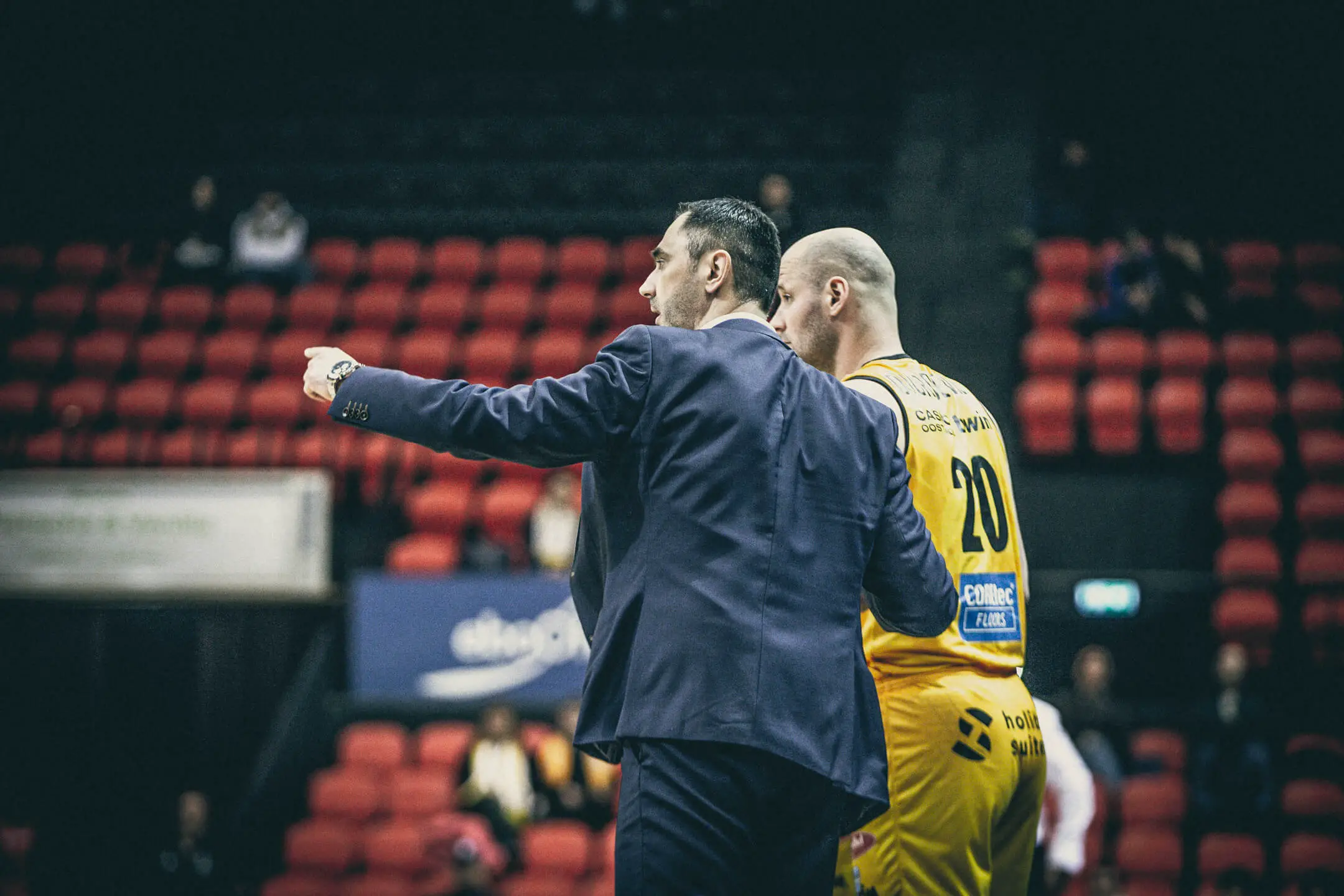
Official photo @basketbalcluboostende
Ostend is a quiet town on the Belgian coast on the North Sea, a holiday destination for wealthy Belgians who often own a second home there. A small town as big as Zadar and similar in some ways, but where the north wind beats the “bura” blowing in Croatia. Can you confirm that?
Yes, the wind here is actually powerful and constantly present! Ostend is similar to Zadar because it is on the seaside, and everything is within reach. I live 150 meters from the arena; I walk everywhere. I love this peace and not being in a busy city: this is my favourite lifestyle. You do not waste time in traffic, and you can find time to be with your family, free your mind from worries, and do sports every day. Here I can put into practice the motto: mens sana in corpore sano. My wife and my daughter have also settled here very well. When I feel the need for some Croatian flavour, I get pampered in the Restaurant Dalmacija, owned by a lady from the island of Brac. Thanks to her, I try to set aside my homesickness.
And when are you planning to go back “home”?
I try to go back whenever I can. I still have my family there, childhood friends, and “colleagues” coaches that I often hear and with whom we also discuss professionally. Zadar is always in my heart, and I don’t see the end of my career abroad. I never look too far; I’m used to living day by day and facing the challenges and opportunities that life offers me. I’d like to go back home at the end of my career, but there’s still time!
The 46-year-old Croat extended his contract with the Belgian National Team until 2025. Gjergja’s big goal will be to qualify Belgium for the 2023 World Cup, which will take place in Indonesia, Japan, and the Philippines.
To read more about sports in Croatia, follow TCN’s dedicated page.

